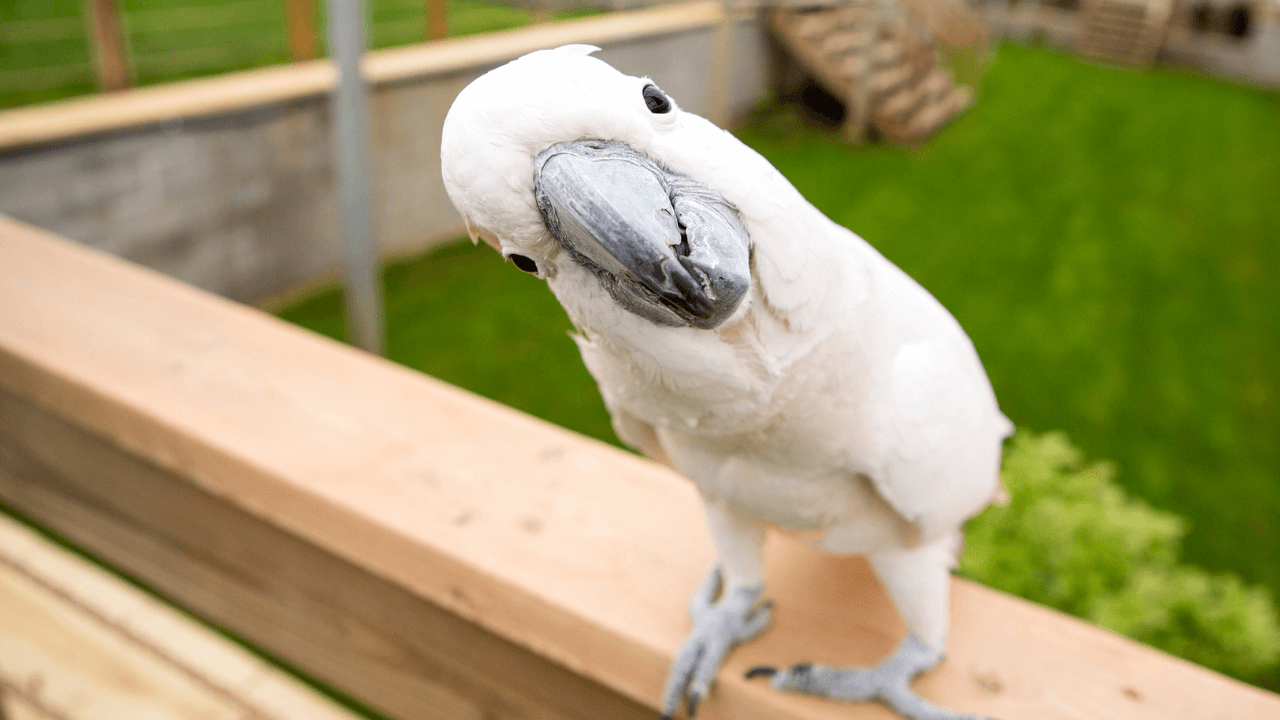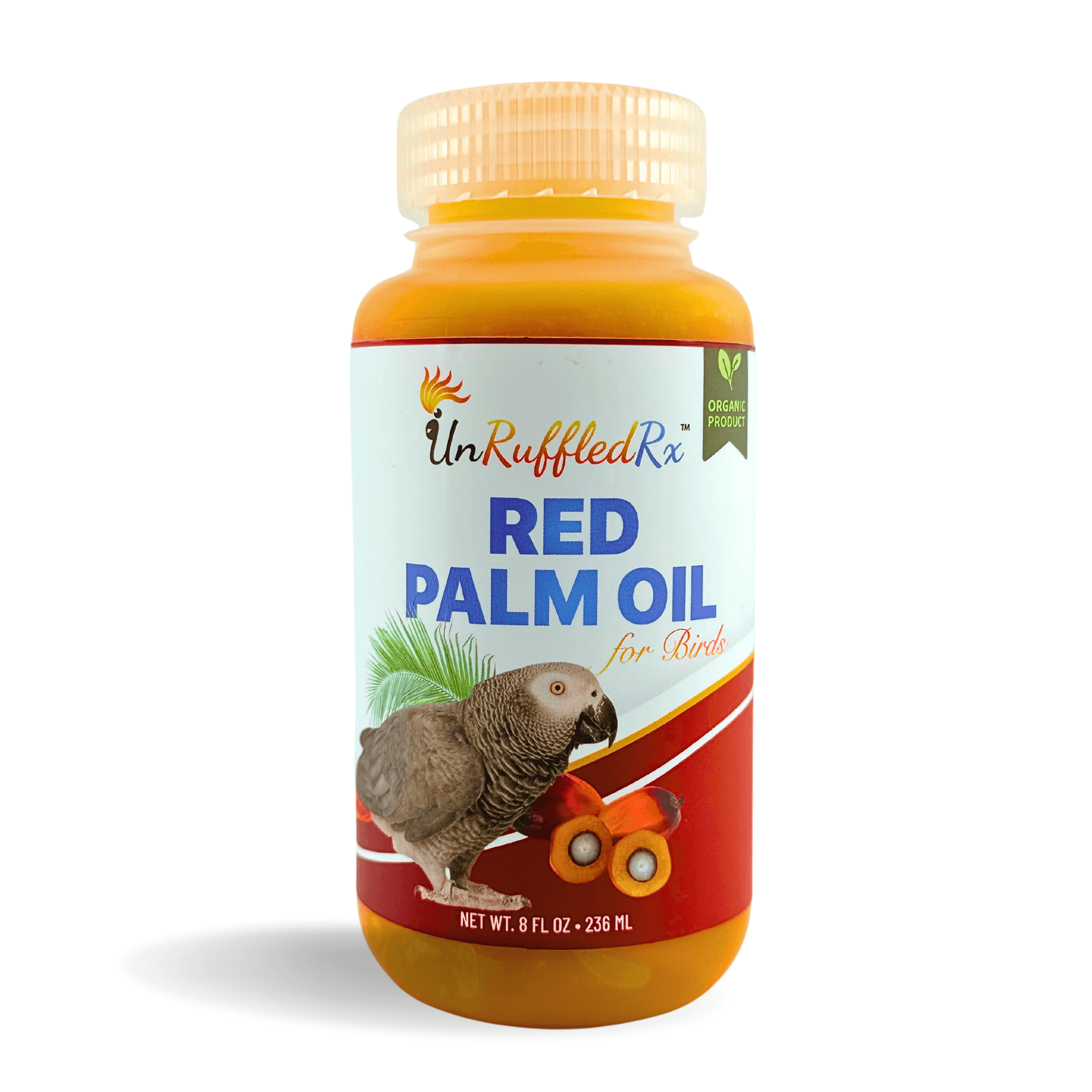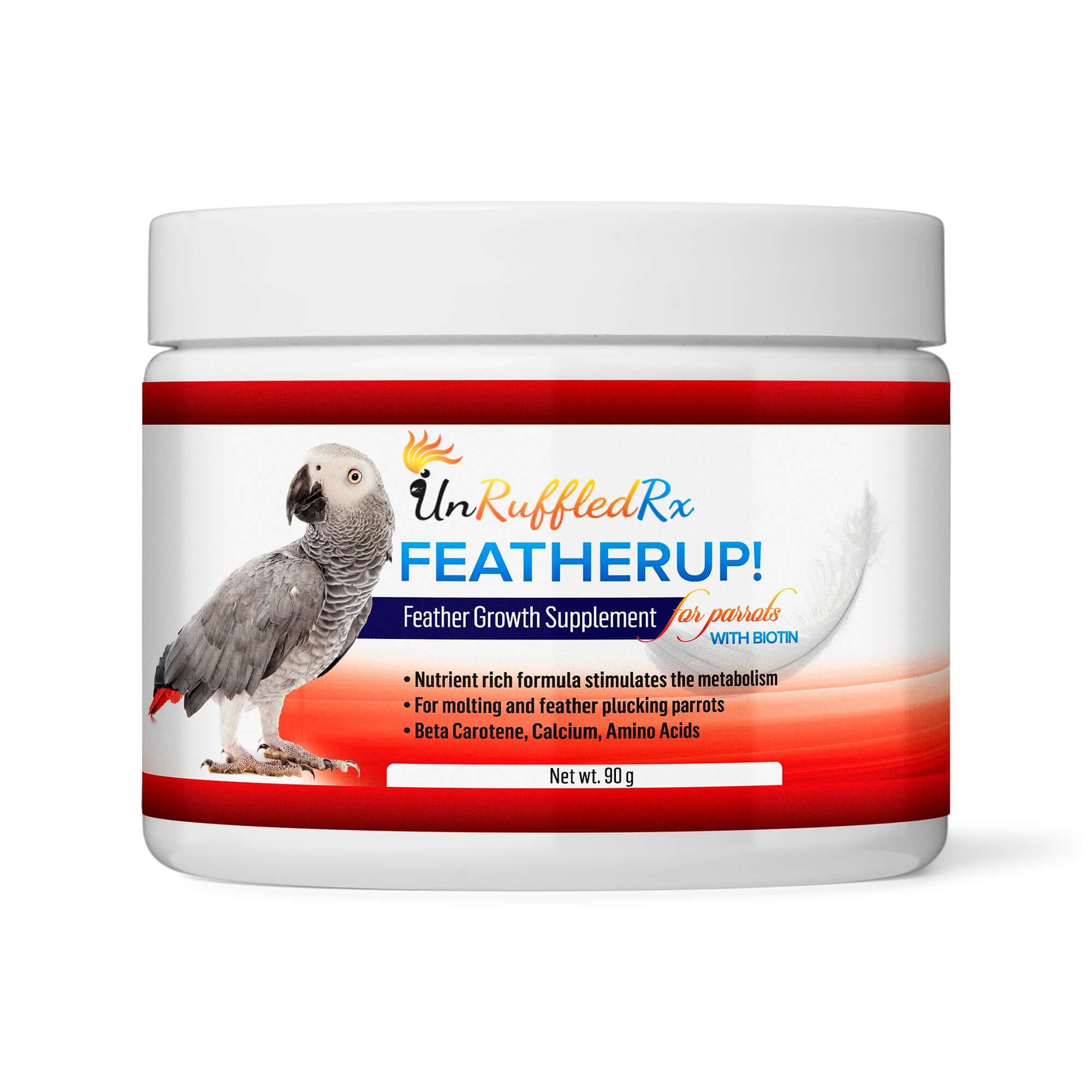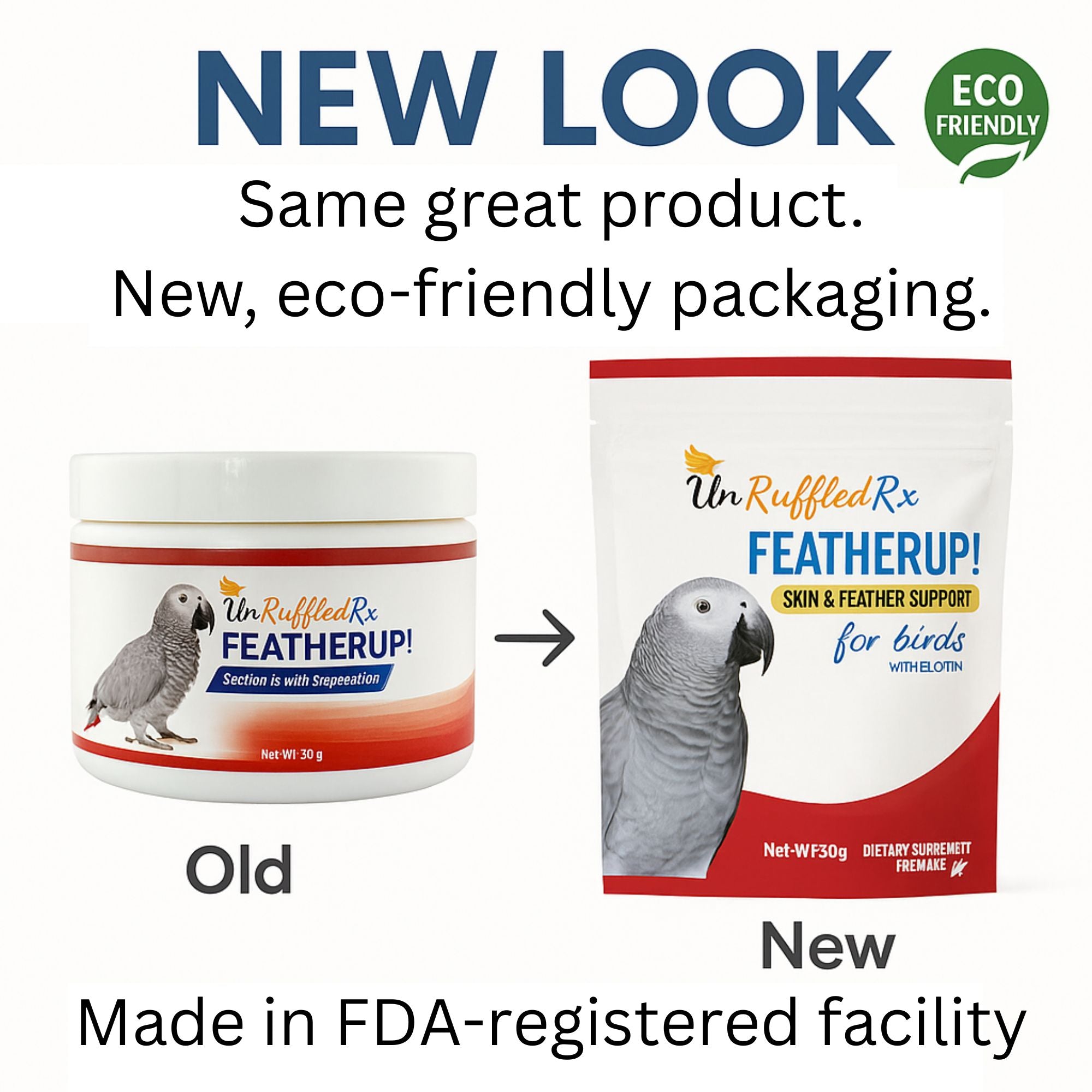By Diane Burroughs
Table of Contents
- 1) Keep them hydrated
- 2) Know the symptoms of overheating in birds
- 3) Should I put my birds in the window?
- 4) Can you have a ceiling fan on with a bird?
- 5) How do I keep my outdoor aviary cool?
- 6) How do I know if my bird has a parasite?
- 7) Use frozen treats to keep them cool
- 8) Take precautions during travel with your pet bird.
- 9) Test Your Knowledge!
"Can birds die from heat?" It's a crucial question for bird parents as temperatures soar. This blog post covers everything from keeping your bird hydrated and recognizing signs of overheating to creating a cool outdoor aviary and using frozen treats to beat the heat. Dive in for expert tips and take our quiz to ensure your feathered friend stays safe and happy all summer long!
1) Keep them hydrated
Just like us, birds need plenty of water to stay cool and healthy in the hot summer months. Make sure your bird has access to fresh, clean water at all times. Consider placing multiple water sources around their cage or aviary, and change the water frequently to prevent bacteria buildup.
You can also help your bird stay hydrated by offering fruits and vegetables with high water content, such as cucumber or watermelon. Be sure to wash all produce thoroughly before giving it to your bird. In addition to water and food, you may also want to consider adding a misting system or bird bath to your bird's enclosure. These can help keep them cool and provide an additional source of hydration.
If you're traveling with your bird this summer, make sure to bring plenty of water and a travel-friendly water dispenser. It's important to keep your bird hydrated during long car rides or flights, especially in hot weather.
By keeping your bird hydrated, you'll help them stay healthy and comfortable all summer long.
2) Know the symptoms of overheating in birds
As pet owners, it's important to know the signs of overheating in our feathered friends. Some of the symptoms to look out for include:
- Heavy panting
- Fluffed-up feathers
- Rapid breathing
- Open-mouth breathing
- Weakness or lethargy
- Loss of appetite
- Collapse or seizures
If you notice any of these symptoms in your pet bird, it's crucial to take immediate action to cool them down. Move them to a cooler area, offer them fresh water to drink, and gently mist them with cool water. It's also a good idea to consult with your avian veterinarian as soon as possible to ensure your bird's health and safety.
Remember, prevention is key to keeping your pet bird healthy during the summer months. By following the tips in this article and being aware of the signs of overheating, you can help your feathered friend beat the heat and stay happy and healthy all summer long.
3) Should I put my birds in the window?
It may be tempting to give your pet bird a prime view of the great outdoors by placing its cage in front of a window. However, it is important to consider the potential risks involved. Birds have a natural fear of predators, and being placed near a window could trigger this fear response if they see birds of prey or other animals outside. This can cause them unnecessary stress and anxiety.
Additionally, windows can let in a lot of direct sunlight and heat, which can quickly become dangerous for your bird if they are exposed for too long. It's best to provide your bird with plenty of shade and a cool, comfortable environment to relax in during the summer months.
Another common misconception is that birds can get their daily dose of vitamin D through a window. Modern windows actually filter out vitamin-producing UVA UVB light they are not benefiting your bird. Instead consider taking your bird outside in a safe, escape-proof bird carrier or aviary for 15 minutes when the temperatures are between 50 - 80 degrees. Always supervise your bird when it is outside. I like to sit outside with my birds so that my cockatoo doesn't freak out the neighbors.
Overall, keeping your bird cool and hydrated during the summer months is key to their health and well-being. By following these tips and monitoring their behavior closely, you can ensure that your feathered friend stays happy and healthy all summer long.
4) Can you have a ceiling fan on with a loose bird?
When it comes to keeping your bird cool during the summer, you might be wondering whether or not it's safe to have a ceiling fan on while your bird is in the room. While ceiling fans can certainly help to circulate air and create a cooling effect, there are a few things you should keep in mind.
First, it's important to remember that birds have delicate respiratory. The movement of air from a fan can cause dust and debris to circulate, which can be harmful to your bird's lungs. Additionally, ceiling fans can create drafts that can be uncomfortable for birds, particularly if they're in an exposed area or sitting in a draft.
If that wasn't bad enough, vets tell us that one of the most frequent accidents that they see is birds crashing into the spinning blades of a ceilng fan That's why we suggest that you always keep your bird in its cage when the ceiling fan is on.
Finally, it's a good idea to keep an eye on your bird's behavior when the fan is on. If you notice signs of stress or discomfort, such as panting, fluffed feathers, or a lack of appetite, it's best to turn off the fan and find another way to keep your bird cool, like frequently misting it and helping it to stay hydrated.
Overall, while it is possible to use a ceiling fan around your bird, it's important to do so with extreme caution and to pay close attention to your bird's behavior. By taking these steps, you can help to keep your feathered friend safe and comfortable during the hot summer months.
5) How do I keep my outdoor aviary cool?

Giving your bird some outdoor time in an aviary comes with amazing health perks, especially when it comes to soaking up that essential vitamin D from the sun. Just imagine your feathered friend basking in the sunlight, feeling the gentle warmth on their wings.
However, remember that our birds originally come from lush tropical forests, where the temperature stays around 80 degrees, and they can enjoy misting rain and plenty of shade. So, when setting up your aviary, try to mimic that tropical paradise with some shade and a way to keep your bird cool and comfortable. Your bird will thank you for the mini rainforest retreat!
Here are some tips for keeping your outdoor aviary cool:
1. Shade: Ensure your birds stay cool by providing shade during the hottest parts of the day. Use trees, umbrellas, or awnings for a comfy retreat.
2. Misters: Ensure your birds stay cool by providing shade during the hottest parts of the day. Use trees, umbrellas, or awnings for a comfy retreat.
3. Ventilation: Ensure proper ventilation in your aviary to keep your birds cool and comfortable. Good airflow helps regulate temperature and provides a fresh, pleasant environment for your feathered friends.
4. Water: Make sure your birds have constant access to fresh, cool water, especially on hot days. Keeping their water supply clean and cool helps them stay hydrated and comfortable. Additionally, provide a shallow pan of water for them to use as a bath. This will keep them happy, healthy, and refreshed.
5. Frozen treats: Offer frozen fruits or vegetables and give them to your birds as a cool treat. This will help keep them cool and hydrated. (see below)
6. Avoid mid-day sun: The hottest part of the day is typically between 11am and 3pm. If it gets much above 80 degrees bring your birds inside.
By following these tips, you can help keep your outdoor aviary cool and comfortable for your birds during the summer heat.
6) How do I know if my bird has a parasite?
As a responsible bird owner, it is important to know the signs and symptoms of parasites in birds. Parasites can affect your bird's overall health and well-being and should be treated immediately. Common signs of parasite infestations in birds include weight loss, diarrhea, vomiting, loss of appetite, lethargy, and feather plucking.
One of the most common parasites in birds is mites. These tiny pests can be hard to see but can cause itching, irritation, and feather loss. Other parasites that affect birds include lice, ticks, and fleas.
If you suspect that your bird may have a parasite, it is important to seek veterinary care immediately. Your veterinarian can diagnose and treat parasites in your bird using a variety of methods, including medication, environmental control, and preventative measures. Keeping your bird's living environment clean and well-maintained can help prevent parasites from infesting your bird in the first place.
7) Offer frozen foraging treats to keep them cool
Just like humans, birds can enjoy a frozen treat to help beat the heat. Here are some ideas for cooling and refreshing snacks that you can give to your pet bird during the hot summer months:
- Frozen fruits: Try freezing some small pieces of fruit, such as blueberries or strawberries, and offering them to your bird as a healthy snack. Not only will it help cool them down, but it also provides some much-needed nutrition.
- Ice cubes: Birds love to play with ice cubes, so you can offer them a few to peck at or drop in their water dish to help keep it cool.
- Popsicles: You can make homemade bird popsicles by mixing some of their favorite fruits and water, and freezing it in a small cup or ice cube tray. Just be sure to avoid using any fruit with pits or seeds.
- Frozen veggies: Some birds love frozen peas or corn, which you can simply freeze in a baggie and then offer as a snack.
Frozen Foraging Wreath
What’s Needed
- Bundt Pan or Popsicle Kit (use a smaller pan for small birds)
- Safe Rope (like hemp or sisal)
- A Variety of Fresh Ingredients: Oranges, Lemons, Raspberries
- Other Great Options: Cranberries, Apple Slices, Pears, Grapes, Nuts, Edible Flowers
Directions
- Slice up your chosen fruits and veggies. Get creative and let the kids help with the fun!
- Arrange the slices in the bundt pan or popsicle molds.
- Add small items like raspberries for a pop of color and texture.
- Slowly pour water into the pan or molds, just covering the ingredients.
- Pop it in the freezer for a few hours until solid.
- To remove, run warm water over the bottom of the pan or molds to release your frozen treats.
- Hang the wreath using the safe rope, and watch your birds enjoy their refreshing snack!
Suggested Ingredients
| Fruits | Vegetables | Herbs & Flowers |
|---|---|---|
| Oranges 🍊 | Carrot Slices 🥕 | Mint Leaves 🌿 |
| Lemons 🍋 | Bell Peppers 🌶️ | Edible Flowers 🌸 |
| Raspberries | Zucchini | Rose Petals 🌹 |
| Cranberries | Broccoli Florets | Marigold Petals |
| Apple Slices 🍏 | Snap Peas | Dandelion Flowers 🌼 |
| Pears 🍐 | Cucumber Slices 🥒 | Basil 🌿 |
| Grapes 🍇 | Spinach Leaves | Lavender |
| Blueberries | Green Beans | Pansies |
| Strawberries 🍓 | Celery Sticks | Cilantro |
8) Take precautions during travel with your pet bird.
Whether you’re taking a road trip or a plane ride, traveling with your pet bird can be stressful. Here are some precautions to keep in mind when traveling with your feathered friend:
1. Use a secure but well-ventilated bird carrier - Ensure that your bird’s carrier is sturdy and secure. Make sure that there is enough ventilation and space for your bird to move around comfortably.
2. Keep your bird calm - If your bird is not used to traveling, it’s essential to keep them calm. Try to keep the environment as calm as possible. If your bird is prone to travel anxiety, like many birds are, grab a bottle of Parrot Calming Formula to help calm its nerves.
3. Protect them from direct sunlight - Keep your bird away from direct sunlight and make sure that their carrier is shaded.
4. Stay hydrated - Ensure that your bird has access to clean water during the journey. You can offer them water in a bowl or use a special water bottle designed for birds.
5. Never leave them in a car unattended - Car temperatures can rise rapidly creating a very dangerous environment for your bird. Always take your bird with you when you leave the car. Even if you only plan to be gone for a minute.
6. Check local laws and regulations - Some states and countries have restrictions on transporting birds, so it’s essential to check local laws and regulations before traveling with your pet bird.
7. Prepare for emergencies - Pack a first aid kit, including avian electrolytes, and make sure that you have the contact details of a local avian veterinarian at your destination.
8. Monitor your bird closely - Keep an eye on your bird during the journey and look out for any signs of distress, such as heavy breathing or loss of appetite.
Quiz: Test Your Knowledge on Summer Bird Care
The summer heat can be tough on our feathered friends, but by following these tips, you can help keep them healthy and comfortable. Always make sure your bird has access to fresh, clean water and be on the lookout for signs of overheating. It's best to keep birds out of direct sunlight and avoid placing them near windows where temperatures can soar. Use frozen treats to help them cool down and take extra precautions when traveling with your pet bird. By taking these simple steps, you can help ensure your bird stays healthy and happy all summer long. Stay cool!
Related Posts:
Beat Bird Heat Stroke—From the Inside Out
How Do I Keep My Bird Cool This Summer?
3 Homemade Bird Treats Your Parrot Will Love This Summer
References:
When is the hottest part of the day
Link to this blog
Burroughs, D. (2025, June 26). Can birds die from heat? 8 summer survival tips. BirdSupplies.com Blogs. https://birdsupplies.com/blogs/news/can-birds-die-from-heat-8-summer-survival-tips
Diane Burroughs, LCSW is a licensed psychotherapist trained in ABA therapy techniques. She specializes in avian anxiety disorders and is certified in Nutrition For Mental Health. Diane has written a number of bird behavior books and she offers behavior consultations. She's developed a range of UnRuffledRx Science-backed Parrot Wellness Supplies.
Diane's products have been featured in the Journal of Avian Medicine and Surgery and at Exoticscon, a conference for exotic pet veterinarians. Her bird collars & supplements are stocked in avian vet clinics and bird stores throughout the US. With over 30 years in the field of behavior, Diane has created thousands of successful individualized behavior plans that help pets thrive.
TAGS: #SummerBirdCare #SummerHeatAndBirds
SHARING IS CARING! PLEASE SHARE ON YOUR FAVORITE SOCIAL MEDIA NOW!
















